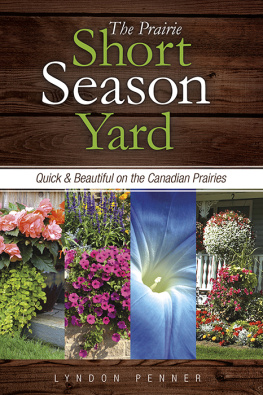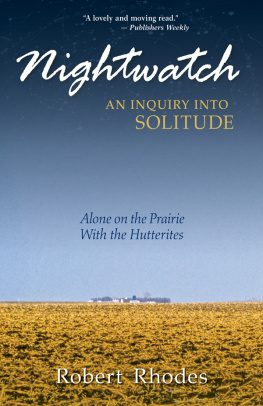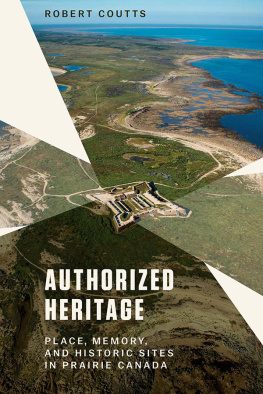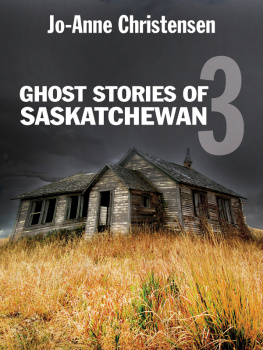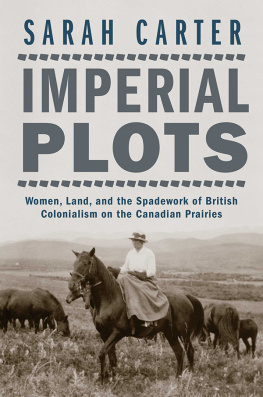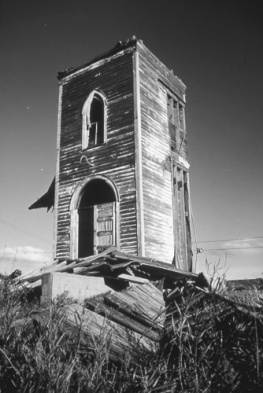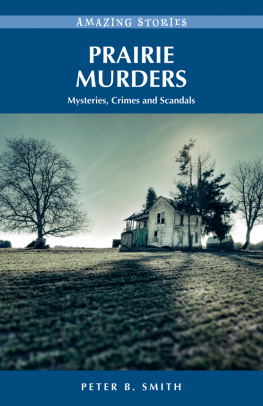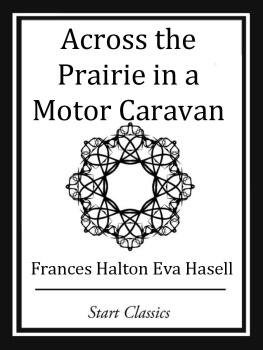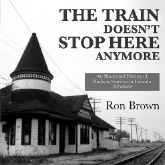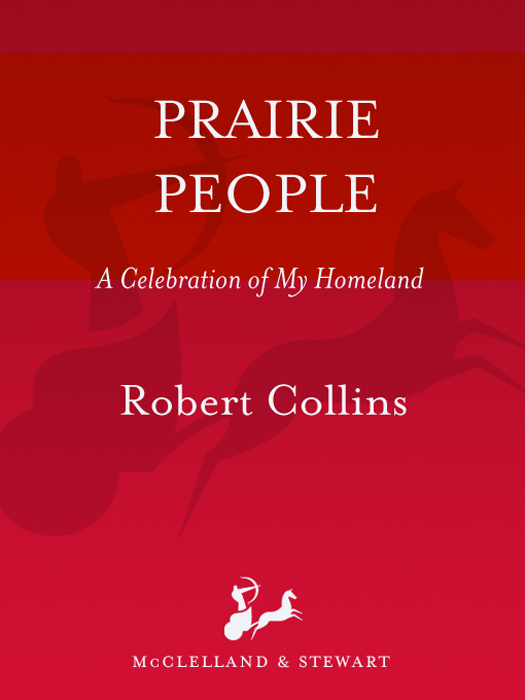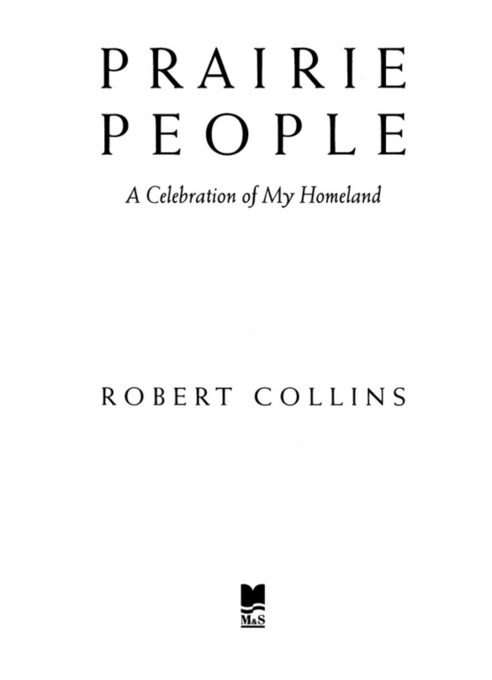BOOKS BY ROBERT COLLINS
NON-FICTION
East to Cathay (1968)
A Great Way To Go (1969)
The Medes and the Persians (1972)
The Age of Innocence: 18701880 (1977)
A Voice from Afar (1977)
Butter down the Well (1980)
One Thing for Tomorrow (with Joyce Brack, 1981)
The Holy War of Sally Ann (1984)
The Long and the Short and the Tall (1986)
The Kitchen Table Money Plan (with Barbara McNeill, 1992)
Who He?: Reflections on a Writing Life (1993)
You Had To Be There: An Intimate Portrait of the Generation that Survived the Depression, Won the War, and Re-Invented Canada (1997)
Prairie People: A Celebration of My Homeland (2003)
FICTION
Legend of the Devils Lode (1962)
Rorys Wildcat (1965)
Copyright 2003 by Robert Collins
All rights reserved. The use of any part of this publication reproduced, transmitted in any form or by any means, electronic, mechanical, photocopying, recording, or otherwise, or stored in a retrieval system, without the prior written consent of the publisher or, in case of photocopying or other reprographic copying, a licence from the Canadian Copyright Licensing Agency is an infringement of the copyright law.
Library and Archives Canada Cataloguing in Publication
Collins, Robert, 1924
Prairie people : a celebration of my homeland / Robert Collins.
eISBN: 978-1-55199-513-7
1. Prairie Provinces History. 2. Prairie Provinces Social conditions. 3. Prairie Provinces Biography. I. Title.
FC 3237. C 55 2003 971.2 C 2003-902056-8
F 1060. C 656 2003
We acknowledge the financial support of the Government of Canada through the Book Publishing Industry Development Program and that of the Government of Ontario through the Ontario Media Development Corporations Ontario Book Initiative. We further acknowledge the support of the Canada Council for the Arts and the Ontario Arts Council for our publishing program.
McClelland & Stewart Ltd.
The Canadian Publishers
75 Sherbourne Street
Toronto, Ontario
M5A 2P9
www.mcclelland.com
v3.1
For Sadie
CONTENTS
PREFACE
This book has been a labour of love and a mountain of labour.
It aims to describe and define the 5.1 million people of the three prairie provinces: how they live, how they feel about themselves their loves, hopes, hates, fears, values and how they feel about the rest of Canada. In particular, it explores and explains the prairies century-old distrust of and disenchantment with the Centre.
Most important, it is an homage to what the University of Reginas Dr. John Conway calls a region hard to understand and an effort to dispel some of the fallacies and misunderstandings of the West.
West, for my purposes, refers to the prairies only. After settling on that definition, I discovered that the eminent Calgary-born historian G.F.G. Stanley took the same tack more than thirty years ago in his essay The Western Canadian Mystique.
Western Canada means that region lying between the Canadian shield on the east and the Rocky Mountains on the west, wrote Stanley (who died in 2002). More specifically the area with which I am concerned includes the great plains, that vast expanse of treeless prairie, bright sunshine and relentless wind, split by dry water courses called coulees, and drained by the Saskatchewan and Red Rivers and their tributaries, both systems emptying into Hudson Bay.
This region is my original and spiritual home. I was born and raised on a Saskatchewan farm. After the Second World War, I attended the University of Saskatchewan. Further studies and jobs took me east, but for five years I lived in Calgary and Winnipeg, patrolling all three provinces as Western editor of Macleans magazine. Since then I have returned more than a hundred times to write about, or simply be in, the prairie.
Calgary writer, editor, and critic George Melnyk says prairie is an outdated concept. Prairie is such a geographic term, such an agricultural term, such a land-based term, he told me over a brew in the Second Cup. Its a nostalgic idea, a romantic idea. It was a real idea a hundred years ago. But whos pioneering the land now?
He has a point, but the prairie-province concept isnt going away. The physical nature of the land remains a powerful reality. Anyone driving between Saskatoon and Regina, or Edmonton and Medicine Hat, will find no finer display of prairie (from the Old French praerie for meadowland) on earth. And even as Melnyk and I spoke, a gale-force west wind was whooping through Calgary, heading unimpeded over the flatland all the way to Saskatchewan.
As in any writing on contemporary times, change is a great hazard: people dying, people moving, statistics lagging. Toronto trendies may even have stopped wearing black before this is published. If change has caught up with any of my subjects when you read this, I can only say, This is how they were.
For this task I travelled nineteen thousand miles over two and a half years, talked or corresponded with 280 men, women, and children, browsed 142 books and studies, drew on seventy years of memories, yet have barely scratched the tip of the subject or a fraction of the population. With these caveats, I hope you will find here an honest portrait of a distinct and durable people and will come to know them better.
INTRODUCTION
Who Are Those Guys?
To the average Eastern infidel barrelling down the Trans-Canada Highway, the prairie is a region of stupefying monotony, best seen or better not from thirty-seven thousand feet. How could any sane person grow attached to a landscape so flat, so bleak, so bland, so parched and frigid by turns? Northrop Frye, destined to be Canadas most eminent scholar and critic, was posted to Saskatchewan for the summer of 1934 as a United Church student minister. I would commit suicide without the slightest hesitation if I thought I should have to stay out here all my life, he wrote home to Toronto.
Probably, the visitor speculates, this hostile habitat accounts for Westerners quirks; why, for instance, prairie people are continually griping about the iniquitous East when surely, deep down, they envy it. Who would not want to be an Easterner, given the chance?
Perhaps, outsiders theorize, the harsh prairie environment also spawns those loopy protest parties, always at the wrong end of the political spectrum. Perhaps it accounts for prairie rednecks, famed in Eastern mythology: those whisky-guzzling, tobacco-spitting, racist, homophobic loogans in tractor-driver caps, rifles slung in the cabs of their pickups. Are they the mutant product of some noxious chemical riding the everlasting wind?
It is all too puzzling. As the baffled Butch Cassidy said to the Sundance Kid when the posse kept coming and coming, so do bemused Easterners gaze over their shoulders into the Western wilderness and wonder, Who are those guys?
A Region Hard to Understand
The west is a region that is hard to understand, full of contradictions, politically uneasy, economically vulnerable, chronically unhappy, concedes Dr. John Conway, University of Regina professor of sociology and social studies. A big man with thick white hair, Conway knows his prairie as well as anyone, having been born in Moose Jaw and, after sampling other jurisdictions earning his Ph.D. at Simon Fraser University, turning down an Ontario job offer settling in Regina by choice. I think because were on the margins of the country, weve always been more open to contemplate social, political, economic experiments.


